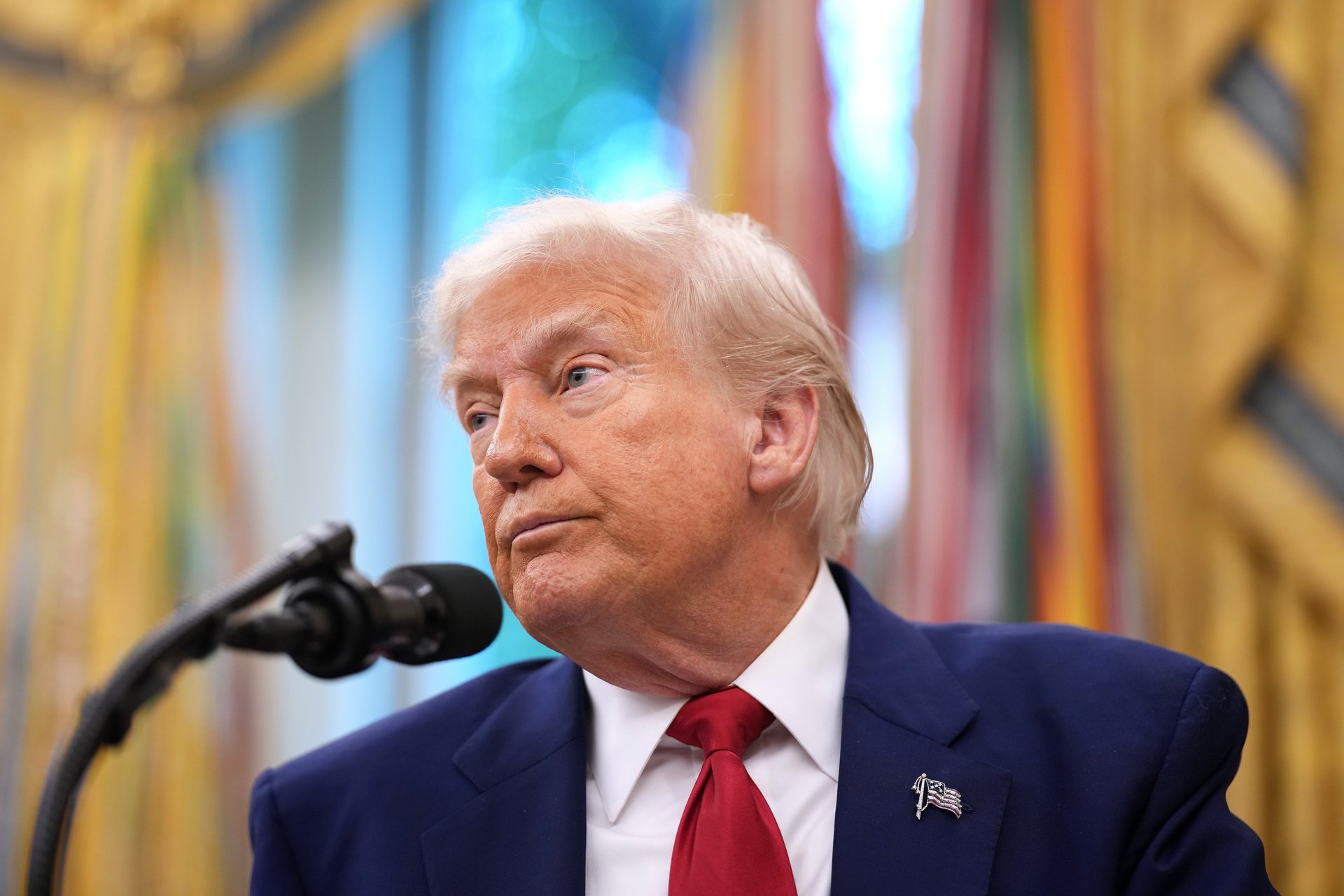Stocks keep some gains as an appeals court pauses a ruling that blocked Trump's tariffs
Uncertainty reigns as the courts cloud the outlook for the president's trade war

In a reversal of fortunes fit only for Washington, an appeals court on Thursday paused the U.S. Court of International Trade’s ruling late Thursday that President Donald Trump overstepped his authority by imposing sweeping tariffs under the International Emergency Economic Powers Act.
Suggested Reading
The earlier ruling had triggered an immediate relief rally late Wednesday and into Thursday across sectors from tech to consumer staples and retailers. As of midday, the S&P 500 had gained around 0.3%. The Nasdaq had climbed 1%, helped along by Nvidia earnings, while the Dow Jones Industrial Average had ticked up slightly, with fresh GDP data helping to moderate investors’ enthusiasm. Jobs numbers showing a rise in unemployment claims, above the level many economists had predicted, also added to the unease.
Related Content
Then, just before market closed on Thursday, the appeals court paused Wednesday’s ruling. The appeals court will consider arguments before delivering a decision, accommodating the administration’s request for a delay.
In the meantime, it appears the tariffs in question will be allowed to remain place.
The legal and political fallout may be just beginning
The earlier ruling dealt a blow to one of Trump’s central economic strategies: using aggressive tariffs to pressure trading partners. The administration then filed an appeal which led to the most recent reversal.
Early Thursday, influential banks and analysts released memos about other ways that the White House could seek to impose tariffs. Jefferies (JEF) and Goldman Sachs (GS) both issued memos early Thursday noting that the ruling by the U.S. Court of International Trade applies narrowly to tariffs imposed under the 1977 International Emergency Economic Powers Act. Tariffs based on other authorities — like sections 301, 232, and 122 — remain untouched.
Could the U.S. have to refund tariffs already paid?
Overnight, speculation hit a fever pitch as analysts and journalists questioned whether tariffs already collected might now have to be refunded. If the U.S. Court of International Trade’s ruling stands, the government may be required to refund all tariffs collected under Trump’s “reciprocal tariff” framework since April 2.
In such a scenario, refunds would go to the importers of record, typically U.S. businesses that paid tariffs at the border. These firms could file claims through U.S. Customs and Border Protection (the agency which collected the tariffs) to recover any duties paid.
In cases where foreign companies acted as importers or paid the tariffs directly, they could also be eligible for refunds. The money would likely come from the U.S. Treasury (which received the tariff money), potentially adding billions in unexpected liabilities to the federal budget.
However, with the appeals court now pausing the earlier ruling, both sides are set to deliver written arguments, to be filed in early June. And at least for now, most of Trump’s tariffs will remain in place.